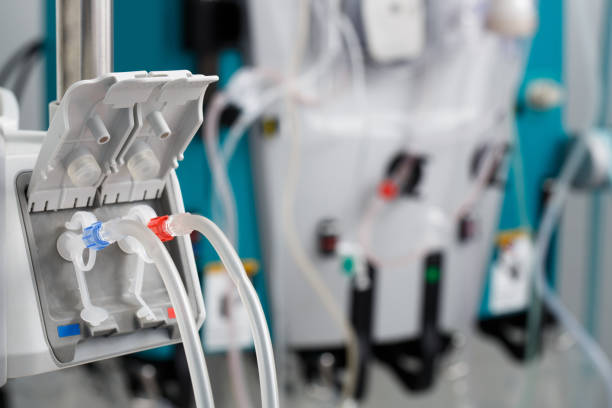Understanding Egg Donation: A Lucrative Opportunity
Egg donation has become a viable option for many women seeking to help others while also earning a significant amount of money. The process involves donating eggs to individuals or couples struggling with infertility. While it is a deeply personal decision, understanding the intricacies, benefits, and requirements can help prospective donors make informed choices.
What is Egg Donation?
Egg donation is a medical procedure in which a woman donates her eggs to another person or couple to assist them in conceiving a child. This process is often facilitated through fertility clinics or egg donation agencies. The donated eggs are fertilized with sperm in a laboratory setting, and the resulting embryos are then implanted into the recipient's uterus.
The Financial Aspect
One of the primary motivations for many egg donors is the financial compensation. Egg donation can be a lucrative endeavor, with donors typically earning between $5,000 and $10,000 per donation cycle. In some cases, compensation can be higher, especially if the donor meets specific criteria set by the recipient or agency.
Eligibility and Requirements
To become an egg donor, there are several eligibility criteria that must be met. Most agencies and clinics require donors to be between the ages of 21 and 35, in good health, and with no significant genetic or hereditary conditions. Donors must also undergo extensive medical and psychological evaluations to ensure they are suitable candidates for the procedure.
The Donation Process
The egg donation process involves several steps, beginning with an initial application and screening. Prospective donors submit detailed medical histories and undergo various tests, including blood work and ultrasounds. Once accepted, donors are matched with recipients based on factors such as physical characteristics, medical history, and personal preferences.
Hormonal Stimulation
To increase the number of eggs available for donation, donors undergo hormonal stimulation. This involves daily injections of fertility medications for approximately 10 to 14 days. These medications stimulate the ovaries to produce multiple eggs, rather than the single egg typically released during a normal menstrual cycle.
Monitoring and Egg Retrieval
Throughout the hormonal stimulation phase, donors are closely monitored through regular blood tests and ultrasounds to track the development of the eggs. Once the eggs are deemed mature, a minor surgical procedure called egg retrieval is scheduled. The retrieval process is performed under sedation and involves using a thin needle to extract the eggs from the ovaries. The procedure usually takes about 20 to 30 minutes, and donors can typically resume normal activities within a day or two.
Risks and Side Effects
Like any medical procedure, egg donation carries potential risks and side effects. Common side effects of hormonal stimulation include bloating, mood swings, and mild discomfort. In rare cases, donors may experience ovarian hyperstimulation syndrome (OHSS), a condition in which the ovaries become swollen and painful. It is essential for donors to discuss these risks with their healthcare provider and ensure they fully understand the potential complications.
Legal and Ethical Considerations
Egg donation involves several legal and ethical considerations. Donors must sign legal contracts outlining the terms of the donation, including compensation, anonymity, and parental rights. It is crucial for donors to seek legal counsel to ensure they understand their rights and responsibilities. Additionally, the ethical implications of egg donation, such as the potential impact on the donor's future fertility and the well-being of the resulting child, should be carefully considered.
Emotional and Psychological Impact
The emotional and psychological impact of egg donation can vary from person to person. Some donors find the experience rewarding, knowing they have helped someone achieve their dream of parenthood. Others may experience emotional challenges, such as attachment to the potential offspring or concerns about the use of their genetic material. It is important for donors to have access to counseling and support throughout the process to address any emotional or psychological issues that may arise.
The Role of Egg Donation Agencies
Egg donation agencies play a crucial role in facilitating the donation process. They act as intermediaries between donors and recipients, ensuring that both parties meet the necessary criteria and that the donation process runs smoothly. Agencies provide support and guidance to donors, from the initial application to post-retrieval follow-up, ensuring that donors are well-informed and comfortable throughout the process.
Anonymity and Confidentiality
Many egg donation arrangements are conducted anonymously, meaning the donor and recipient do not know each other's identities. This anonymity helps protect the privacy of both parties. However, some donors and recipients may choose to have open or semi-open arrangements, where limited information is exchanged. Regardless of the type of arrangement, confidentiality is paramount, and all parties must agree to maintain privacy.
The Impact on Recipients
For recipients, egg donation can be a life-changing experience. Many individuals and couples who have struggled with infertility see egg donation as their last hope for having a biological child. The process can bring immense joy and fulfillment to recipients, allowing them to start or expand their families. The gratitude and appreciation recipients feel towards their donors are often profound, as donors provide a gift that cannot be quantified.
Future Fertility of Donors
A common concern among potential egg donors is the impact of the donation process on their future fertility. Studies have shown that egg donation does not significantly affect a donor's ability to conceive naturally in the future. The retrieval process only targets the eggs that would have been naturally discarded during that menstrual cycle. However, it is essential for donors to discuss their individual fertility goals and concerns with their healthcare provider before proceeding.
Long-Term Follow-Up
Some egg donation programs offer long-term follow-up for donors to monitor their health and well-being after the donation process. This follow-up can include regular check-ins, health assessments, and access to medical care if needed. Long-term follow-up helps ensure that donors remain healthy and that any potential long-term effects of the donation are promptly addressed.
Conclusion
Egg donation is a complex yet rewarding process that offers significant financial compensation while providing a priceless gift to those struggling with infertility. Prospective donors must carefully consider the medical, legal, ethical, and emotional aspects of the process before making their decision. With the support of experienced professionals and comprehensive counseling, egg donors can navigate this journey with confidence, knowing they are making a profound impact on the lives of others.




